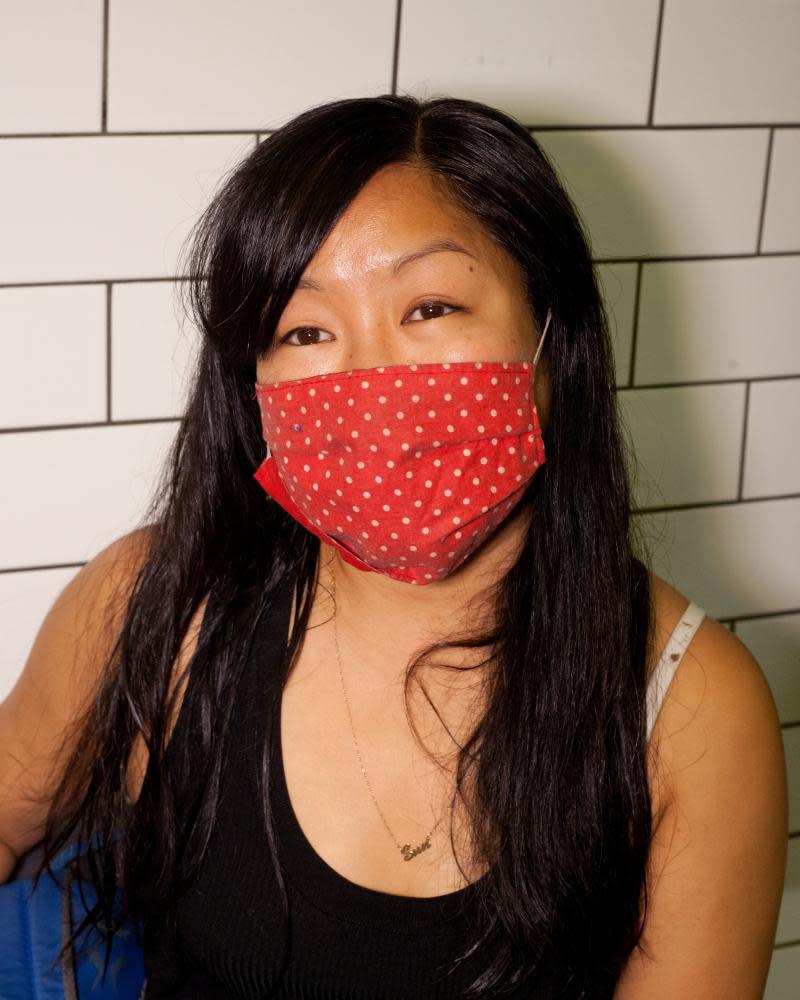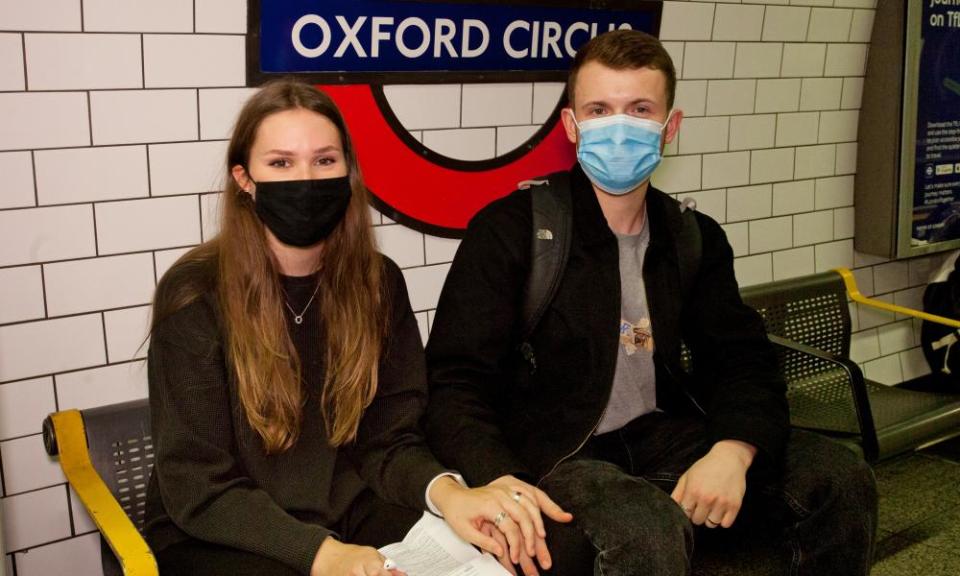To mask or not to mask? Opinion split on London underground

The “do as I say, not as I do” approach to political messaging was again displayed last week when Boris Johnson urged people to wear masks in enclosed spaces, shortly after leading a cabinet meeting of 27 maskless ministers and eight similarly uncovered observers.
Studies suggest masks cut Covid-19 transmission by up to 80%.Although there is disagreement about how much protection different types of mask offer the wearer, the science indicates that pretty much any covering protects the community from the wearer. It is this uneven interdependence that means masks are extremely effective at revealing hypocrisy.
Few places demonstrate the contested role of the mask more clearly than the London underground system. “Face coverings must be worn for the full duration of journeys on the TfL network, including inside our stations and bus stations,” states the Transport for London website, which also lists no less than 11 categories of exemption. This message is continually repeated over loudspeakers, and on advertising hoardings within underground stations.
Yet as many as half the travellers on the system are now ignoring this stipulation. On Friday, I travelled from Queen’s Park to Oxford Circus on the Bakerloo line. When I got off, there were 40 people in the carriage – only 16 of whom were wearing masks.

sneezing on her. Photograph: Sophia Evans/The Observer
James Lennie, who was maskless in Oxford Circus station, said that as the majority of people had now been double vaccinated, the risk was carried by those who had elected not to get jabbed. “So why should I put myself out if they’re not wanting to help themselves?” he said.
While the vaccination offers up to 90% protection from infection, it is not foolproof. People can, and do, become infected – some requiring hospitalisation – after being fully vaccinated. Lennie was aware of this, pointing out that he usually wore a mask, but he was not convinced that masks work.
“I can’t remember the name of the guy who comes on morning TV or whatever,” he said, “but he says, basically, in terms of coronavirus germs, you can fit a bus through the masks.”
Further along the busy platform, Sun Oh was sitting without a mask on, but said that she would before boarding the train. “When I pass someone who’s not wearing a mask, I’m almost terrified they’re going to cough or sneeze on me and I almost hold my breath,” she said.
She felt that masks mess up her lipstick but that, as a friend of hers put it: “Anyone who doesn’t wear a mask is a massive cock.” After we had finished speaking, she fished a mask out of her bag.
Several people said that they had just forgotten to wear a mask that day, but others, such as Diana, a housewife from Wembley, north-west London, were adamant that as she had been double vaccinated it was no longer an issue, even as a TfL announcement reminded passengers of their obligation to cover up their mouths and noses.
“I had a friend who caught corona when he was wearing a mask,” said Diana, by way of explanation. “And he died in hospital. I stopped wearing a mask when I had the vaccine.”

Masked passengers seemed to be divided in their response to their uncovered fellow travellers. Some, such as Alicia and Josh, who were unmasked on the platform but about to put theirs on, said that they thought it was a matter of individual choice. Others, including Jack Phillips, travelling with a baby in a pram, thought the tube was the one place that everyone should abide by the rules. “Actually, I think I’ll always wear one from now on, because of colds and flu,” he added.
Despite TfL’s continual reminders to mask-up, many passengers believe that it is not mandatory, and that all such restrictions came to an end in England on “freedom day” on 19 July. No one I spoke to claimed any kind of exemption.
Travelling north on the Bakerloo line to Paddington was a group of door-to-door salespeople, all of whom were uncovered. They traded stories of how irate other passengers got, noting both the silent and angry protests to which they had been subjected. One recalled that a passenger got up and found another seat because he was not wearing a mask. “I didn’t mind,” he said. “It just gave me more space.” “Someone complained to me from the other side of the carriage,” said his friend Charlie, a young man in his 20s. “I said, ‘I don’t have Covid and it’s not your business.’ He started screaming at me. He was very rude.”
Another of the group, a woman called Julia, said she thought that people on public transport should wear one. “You are on public transport!” shouted her colleague, and everyone laughed.
When they disembarked, a man in his 40s wearing a mask followed after them, turning to me at the door. “I don’t agree with anything they said,” he announced, his voice quivering with passion. “I always wear a mask. I’ve had Covid and it’s really affected me.” He looked haunted by the experience.
If half of the London underground’s passengers are not wearing masks, it is clear that the system is not in a strong position to inhibit infection, particularly when the cold and flu season starts in earnest.
The lack of public agreement on the matter is symptomatic of the mixed messages that have characterised this government’s response to the pandemic. So it is perhaps no coincidence that tube passengers are increasingly following the example set by cabinet ministers.
Whatever Johnson says in contrast to his actions is likely to be greeted in the same manner as TfL’s announcements: as a background noise that can be complacently ignored.

 Yahoo Movies
Yahoo Movies 
